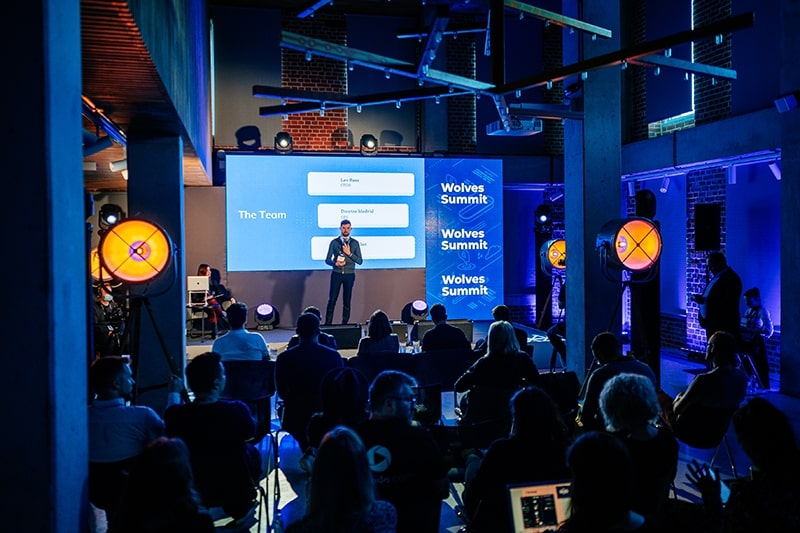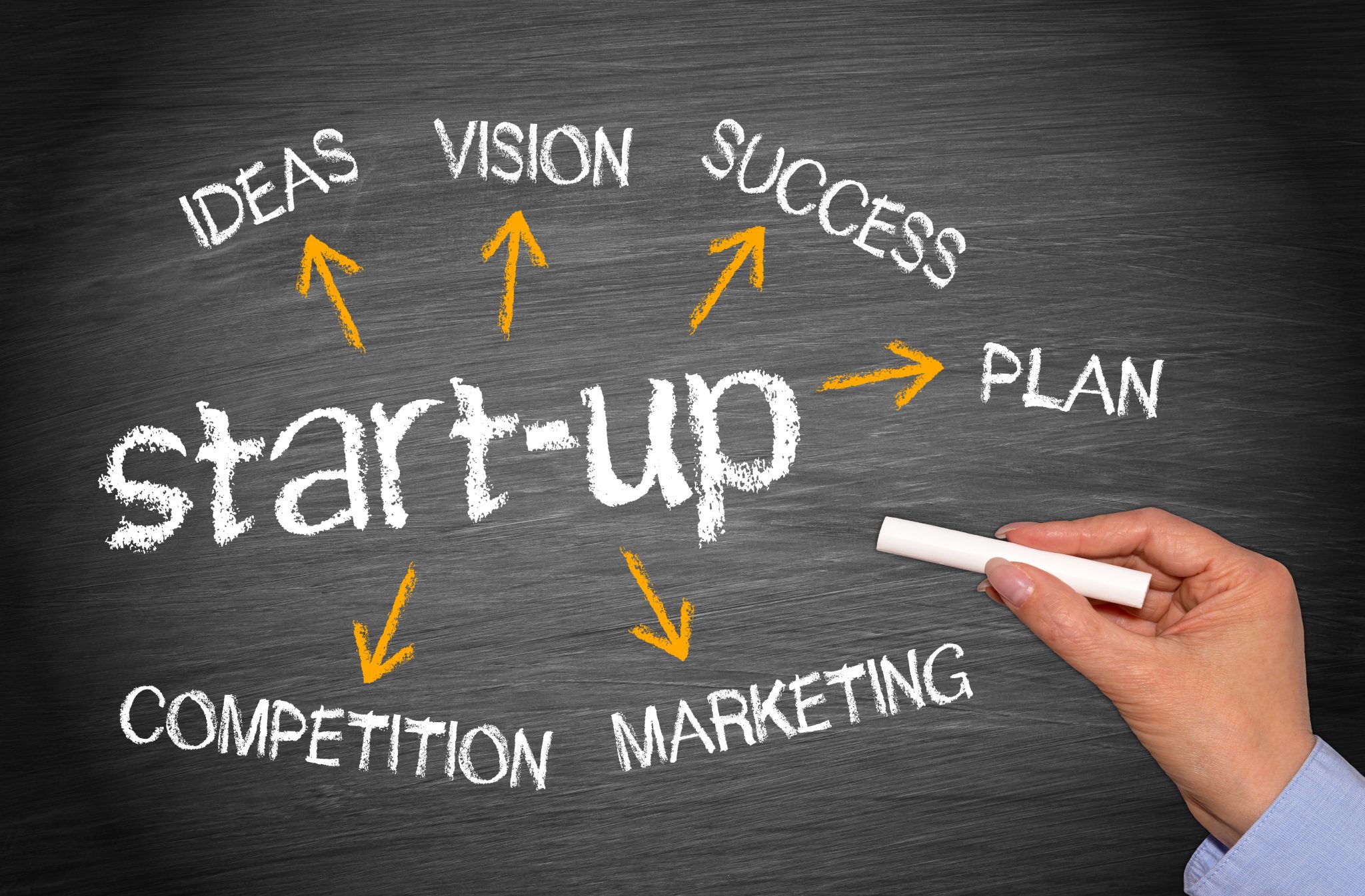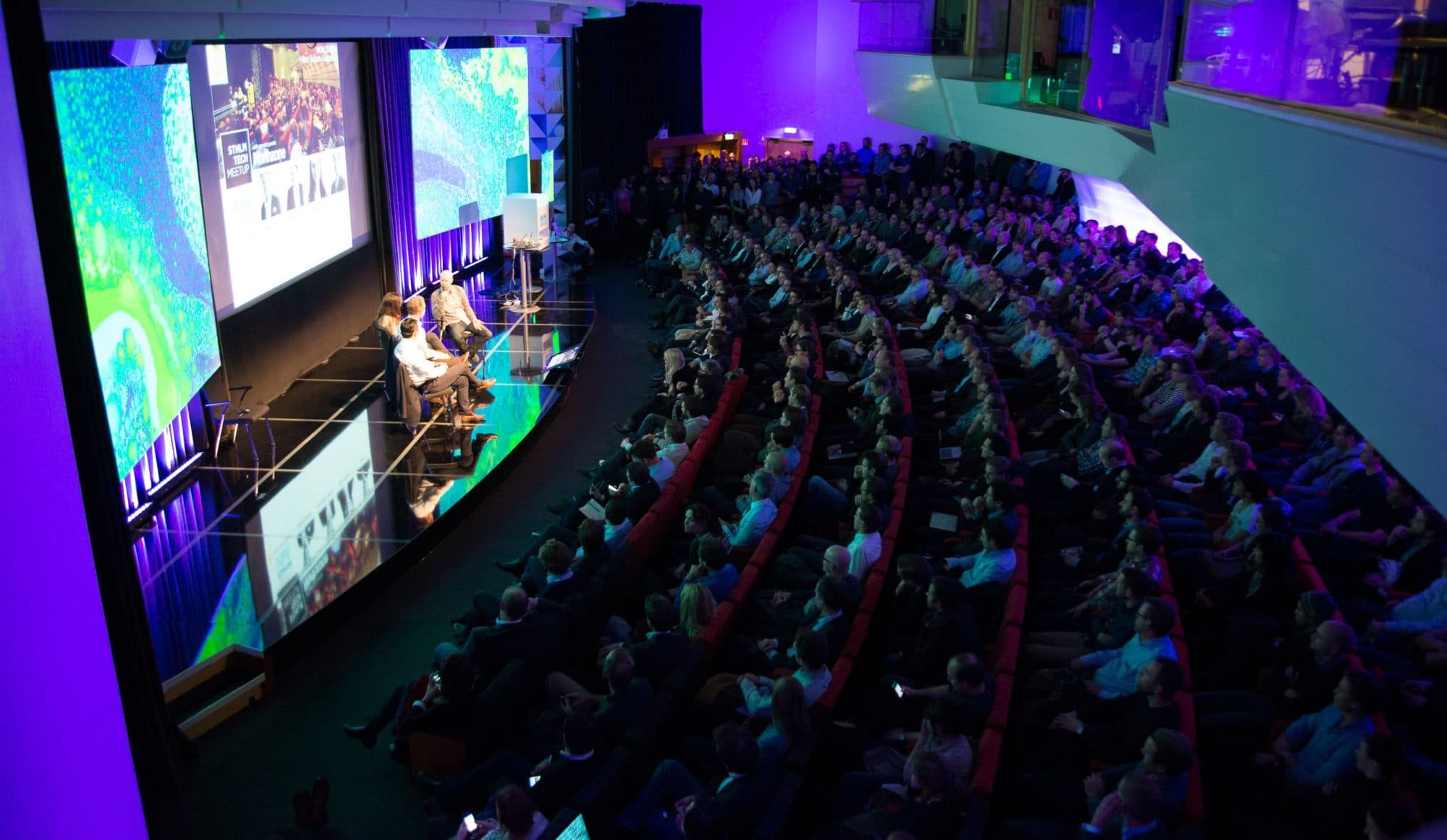Why Attending Startup Events is Crucial for Your Business
Attending startup events and conferences is a vital component of any successful business strategy. These events provide a unique opportunity for entrepreneurs and startups to connect with industry experts, learn from their experiences, and gain valuable insights into the latest trends and innovations. By attending startup events, businesses can build relationships with potential partners, investors, and customers, ultimately driving growth and revenue.
Startup events and conferences offer a platform for businesses to showcase their products or services, receive feedback from attendees, and refine their pitches. This feedback is invaluable in helping startups refine their offerings and improve their chances of success. Moreover, attending startup events provides businesses with the opportunity to learn from industry experts and thought leaders, who share their experiences and provide guidance on how to navigate the challenges of starting and growing a business.
In addition to the learning opportunities, startup events and conferences provide a chance for businesses to network and build relationships with other entrepreneurs, investors, and industry experts. These relationships can lead to partnerships, collaborations, and even funding opportunities, all of which are essential for driving business growth. By attending startup events, businesses can establish themselves as thought leaders in their industry, build their brand, and increase their visibility.
Furthermore, startup events and conferences provide a platform for businesses to stay ahead of the competition. By attending these events, businesses can learn about the latest trends and innovations in their industry, and gain insights into the strategies and tactics employed by their competitors. This information can be used to refine their business strategies, improve their products or services, and ultimately drive growth and revenue.
In today’s fast-paced business environment, attending startup events and conferences is no longer a luxury, but a necessity. By attending these events, businesses can gain a competitive edge, build relationships, and drive growth. Whether you’re a seasoned entrepreneur or just starting out, attending startup events and conferences is an essential part of any successful business strategy.
How to Choose the Right Startup Event for Your Business
With the numerous startup events and conferences taking place throughout the year, it can be overwhelming to decide which ones to attend. To make the most of your time and resources, it’s essential to choose events that align with your business goals and objectives. Here are some factors to consider when selecting the right startup event for your business:
Event Focus: Consider the focus of the event and whether it aligns with your business interests. Is the event focused on your industry or niche? Are the topics and sessions relevant to your business needs? Make sure the event is focused on areas that will provide value to your business.
Target Audience: Identify the target audience of the event and ensure it aligns with your business goals. Are the attendees potential customers, partners, or investors? Are they industry experts or thought leaders? Make sure the event attracts the right audience for your business.
Speaker Lineup: Review the speaker lineup and ensure it includes industry experts and thought leaders who can provide valuable insights and knowledge. Are the speakers relevant to your business interests? Will they provide actionable advice and strategies that you can apply to your business?
Networking Opportunities: Consider the networking opportunities available at the event. Are there dedicated networking sessions or opportunities to connect with attendees and speakers? Make sure the event provides ample opportunities to build relationships and connections that can benefit your business.
Event Size and Format: Consider the size and format of the event. Is it a large conference or a smaller, more intimate gathering? Is it a single-day event or a multi-day conference? Make sure the event size and format align with your business needs and preferences.
Cost and ROI: Evaluate the cost of attending the event and ensure it provides a good return on investment (ROI) for your business. Consider the cost of tickets, travel, and accommodations, and ensure it aligns with your business budget.
By considering these factors, you can choose the right startup event for your business and make the most of your time and resources. Remember to prioritize events that align with your business goals and objectives, and provide valuable opportunities for networking, learning, and growth.
Top Startup Conferences to Attend in the Industry
Attending top startup conferences and events is an excellent way to network, learn from industry experts, and gain exposure for your business. Here are some of the top startup conferences to attend in the industry:
Web Summit: Held annually in Lisbon, Portugal, Web Summit is one of the largest and most popular startup conferences in the world. The event attracts over 70,000 attendees from 170 countries and features a lineup of top speakers, including industry experts, entrepreneurs, and investors.
SXSW: Held annually in Austin, Texas, SXSW is a premier startup conference that showcases the latest trends and innovations in the tech industry. The event features a lineup of top speakers, including industry experts, entrepreneurs, and investors, and attracts over 70,000 attendees from around the world.
TechCrunch Disrupt: Held annually in San Francisco, California, TechCrunch Disrupt is a leading startup conference that showcases the latest trends and innovations in the tech industry. The event features a lineup of top speakers, including industry experts, entrepreneurs, and investors, and attracts over 10,000 attendees from around the world.
Startup Grind: Held annually in various locations around the world, Startup Grind is a global startup conference that brings together entrepreneurs, investors, and industry experts to share knowledge, experience, and insights. The event features a lineup of top speakers and attracts over 10,000 attendees from around the world.
Collision Conference: Held annually in Toronto, Canada, Collision Conference is a leading startup conference that showcases the latest trends and innovations in the tech industry. The event features a lineup of top speakers, including industry experts, entrepreneurs, and investors, and attracts over 25,000 attendees from around the world.
These top startup conferences offer a unique opportunity to network, learn from industry experts, and gain exposure for your business. Whether you’re a seasoned entrepreneur or just starting out, attending these events can help you stay ahead of the competition and achieve your business goals.
What to Expect from a Startup Event: Agenda, Speakers, and Networking Opportunities
When attending a startup event, it’s essential to know what to expect to make the most of your time and resources. Here’s an overview of what you can expect from a typical startup event:
Agenda: A typical startup event agenda includes a mix of keynote speeches, panel discussions, workshops, and networking sessions. The agenda is usually designed to provide a balance of learning, networking, and entertainment. Expect to see a range of topics covered, from industry trends and innovations to startup success stories and lessons learned.
Speakers: Startup events feature a lineup of top speakers, including industry experts, entrepreneurs, and investors. These speakers share their experiences, insights, and knowledge on various topics related to startups and entrepreneurship. Expect to hear from speakers who are passionate about their work and willing to share their expertise with the audience.
Networking Opportunities: Networking is a crucial aspect of any startup event. Expect to meet fellow entrepreneurs, investors, and industry experts who can provide valuable connections, advice, and support. Many events also offer dedicated networking sessions, such as speed networking or networking lounges, to help attendees connect with each other.
Preparing for a Startup Event: To make the most of a startup event, it’s essential to prepare in advance. Here are a few tips to help you prepare:
Develop an Elevator Pitch: An elevator pitch is a brief summary of your startup and its value proposition. Develop a clear and concise pitch that you can use to introduce yourself and your startup to others.
Bring Business Cards: Business cards are a must-have at any startup event. Make sure you have a sufficient supply of cards and that they are up-to-date and professional.
Research the Attendees and Speakers: Research the attendees and speakers in advance to identify potential connections and opportunities. This will help you make the most of your time at the event and ensure that you meet the right people.
By knowing what to expect from a startup event and preparing in advance, you can make the most of your time and resources and achieve your goals. Whether you’re looking to network, learn from industry experts, or gain exposure for your startup, a startup event can be a valuable experience that helps you achieve success.
Maximizing Your Time at a Startup Event: Tips for Getting the Most Out of Your Attendance
Attending a startup event can be a valuable experience, but it’s essential to make the most of your time to achieve your goals. Here are some tips to help you maximize your time at a startup event:
Prioritize Sessions: With multiple sessions and speakers to choose from, it’s crucial to prioritize the ones that align with your business goals and interests. Review the agenda in advance and plan your schedule accordingly.
Take Effective Notes: Taking notes during sessions can help you retain valuable information and insights. Use a notebook or a note-taking app to capture key takeaways, and review them later to reinforce your learning.
Follow Up with New Contacts: Networking is a critical aspect of any startup event. Make sure to follow up with new contacts, including fellow attendees and speakers, to continue the conversation and build relationships.
Use Social Media: Social media can be a powerful tool to maximize your time at a startup event. Use Twitter, LinkedIn, or other platforms to connect with attendees, share your thoughts and insights, and join the conversation.
Prepare an Elevator Pitch: An elevator pitch is a brief summary of your startup and its value proposition. Prepare a clear and concise pitch to introduce yourself and your startup to others, and be ready to deliver it at a moment’s notice.
Be Proactive: Don’t wait for opportunities to come to you – create your own. Be proactive in seeking out new contacts, asking questions, and engaging in conversations. This will help you make the most of your time at the event and achieve your goals.
By following these tips, you can maximize your time at a startup event and achieve your goals. Whether you’re looking to network, learn from industry experts, or gain exposure for your startup, a startup event can be a valuable experience that helps you achieve success.
Startup Event Success Stories: How Attendees Have Benefited from Attending
Attending startup events and conferences can be a game-changer for entrepreneurs and businesses. The opportunities to network, learn from industry experts, and gain exposure can lead to significant benefits, including funding, partnerships, and growth. Here are some real-life examples of startups that have benefited from attending events and conferences:
For instance, Airbnb’s founders, Brian Chesky and Joe Gebbia, attended a design conference in New York City, where they met a prominent designer who became a mentor and helped them refine their concept. This connection ultimately led to Airbnb’s success, with the company now valued at over $50 billion.
Another example is Warby Parker, which attended the SXSW conference in 2010. The company’s founders, Neil Blumenthal and Dave Gilboa, met with investors and industry experts, which helped them secure funding and expand their business. Today, Warby Parker is a leading eyewear brand with over 100 stores across the United States and Canada.
Startup events and conferences have also been instrumental in helping companies secure partnerships and collaborations. For example, the founders of Uber attended the LeWeb conference in Paris, where they met with investors and partners who helped them expand their business globally. Today, Uber is one of the world’s largest ride-hailing companies, operating in over 700 cities worldwide.
In addition to these success stories, many startups have also benefited from attending events and conferences by gaining valuable insights and knowledge from industry experts. For example, the founders of Slack attended the Web Summit conference in Dublin, where they learned about the latest trends and technologies in the tech industry. This knowledge helped them refine their product and expand their business, with Slack now valued at over $20 billion.
These success stories demonstrate the potential benefits of attending startup events and conferences. By networking with industry experts, learning from thought leaders, and gaining exposure, entrepreneurs and businesses can gain a competitive edge and achieve significant growth and success.
Overcoming Common Challenges: How to Make the Most of Startup Events as an Introvert or on a Limited Budget
While attending startup events and conferences can be a valuable experience for entrepreneurs and businesses, some attendees may face common challenges that can hinder their ability to get the most out of these events. Two such challenges are being an introvert and having a limited budget. However, with some planning and strategy, it is possible to overcome these challenges and still benefit from attending startup events and conferences.
For introverts, attending startup events and conferences can be overwhelming, especially when it comes to networking and meeting new people. To overcome this challenge, introverts can prepare ahead of time by researching the event’s attendees and speakers, and identifying key people they want to meet. They can also plan their networking strategy, such as setting a goal for the number of people they want to meet, and preparing an elevator pitch to help break the ice. Additionally, introverts can take breaks during the event to recharge and reflect on their experiences.
Another challenge that attendees may face is having a limited budget. However, there are ways to attend startup events and conferences without breaking the bank. One way is to look for free or low-cost events, such as webinars or meetups. Another way is to volunteer at the event, which can provide a behind-the-scenes look at the conference and opportunities to meet speakers and attendees. Additionally, attendees can consider sharing costs with colleagues or friends, such as splitting the cost of a hotel room or transportation.
Furthermore, attendees on a limited budget can also take advantage of online resources and tools to get the most out of the event. For example, they can follow the event’s social media accounts to stay up-to-date on the latest news and announcements. They can also use online networking platforms to connect with attendees and speakers before, during, and after the event.
In addition to these strategies, attendees can also prioritize their spending by focusing on the most valuable aspects of the event.
Staying Connected: How to Continue the Momentum After a Startup Event
Attending startup events and conferences can be a valuable experience for entrepreneurs and businesses, but the real work begins after the event is over. Following up with new contacts and continuing the momentum is crucial to leveraging the connections made at the event. In this article, we will provide advice on how to stay connected with fellow attendees and speakers, and how to leverage the connections made at the event.
One of the most important things to do after a startup event is to follow up with new contacts. This can be as simple as sending a LinkedIn request or a follow-up email to continue the conversation. It’s also important to personalize the follow-up by referencing specific conversations or meetings that took place during the event. This will help to build a stronger connection and increase the chances of a successful collaboration or partnership.
In addition to following up with new contacts, it’s also important to stay connected with fellow attendees and speakers through social media. Many startup events and conferences have their own social media groups or hashtags, which can be used to continue the conversation and share updates. By staying connected through social media, entrepreneurs and businesses can stay up-to-date on the latest news and trends in their industry, and continue to build relationships with other attendees.
Another way to continue the momentum after a startup event is to leverage the connections made at the event. This can be done by scheduling follow-up meetings or calls with new contacts, or by collaborating on projects or initiatives. By leveraging the connections made at the event, entrepreneurs and businesses can turn new relationships into successful partnerships and collaborations.
Finally, it’s also important to reflect on the experience and identify key takeaways and action items. This can be done by writing a blog post or creating a video summary of the event, or by sharing key insights and learnings with colleagues and team members. By reflecting on the experience and identifying key takeaways, entrepreneurs and businesses can continue to learn and grow from the experience, and apply the insights and learnings to their own business.
In conclusion, attending startup events and conferences is just the first step in building relationships and leveraging connections. By following up with new contacts, staying connected through social media, leveraging connections, and reflecting on the experience, entrepreneurs and businesses can continue the momentum after the event and turn new relationships into successful partnerships and collaborations.
By incorporating these strategies into their post-event routine, entrepreneurs and businesses can maximize the value of attending startup events and conferences, and continue to grow and succeed in their industry.







